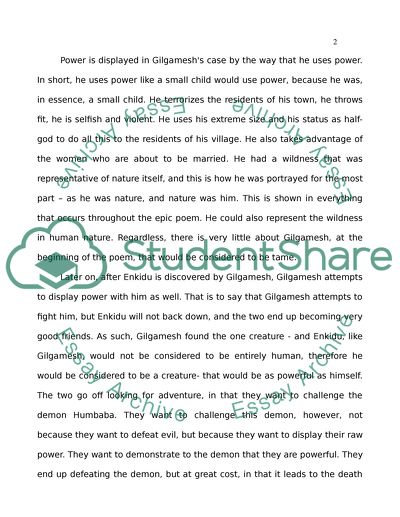Cite this document
(“Power in Gilgamesh and The Odyssey Essay Example | Topics and Well Written Essays - 1000 words”, n.d.)
Retrieved from https://studentshare.org/literature/1491192-the-theme-of-power-in-the-odysseus-and-gilgamesh
Retrieved from https://studentshare.org/literature/1491192-the-theme-of-power-in-the-odysseus-and-gilgamesh
(Power in Gilgamesh and The Odyssey Essay Example | Topics and Well Written Essays - 1000 Words)
https://studentshare.org/literature/1491192-the-theme-of-power-in-the-odysseus-and-gilgamesh.
https://studentshare.org/literature/1491192-the-theme-of-power-in-the-odysseus-and-gilgamesh.
“Power in Gilgamesh and The Odyssey Essay Example | Topics and Well Written Essays - 1000 Words”, n.d. https://studentshare.org/literature/1491192-the-theme-of-power-in-the-odysseus-and-gilgamesh.


